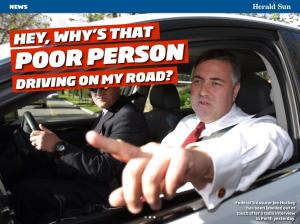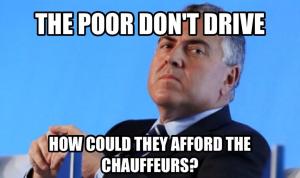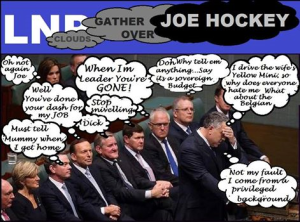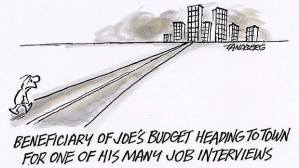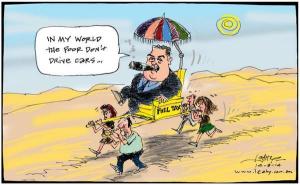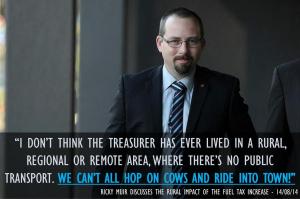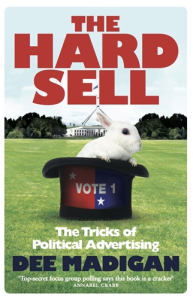media
Twitter, media and politics
Twitter is a relatively recent communications tool and its affect on mass media and politics is still evolving in rapid and sometimes unpredictable ways.
There are already very lengthy and serious research papers being written on the subject and I don’t claim any particular research experience or expertise. However I have enjoyed watching the evolution of this new communications conduit and I’ve made a few mistakes myself along the way. Some funnier than others!
For the purposes of this short article my views and learnings (briefly) are:
1. Journos are learning how important Twitter is, but a few dinosaurs remain. The younger and hipper ones are clearly much better at it. The smart ones understand how to use lists and hashtags to monitor developments and also answer legitimate questions. They also aren’t afraid to block anonymous trolls.
2. Twitter now drives breaking news in mainstream media. The good journos get this. Many mainstream media stories are now peppered with pictures, videos and eyewitness accounts ripped straight from Twitter, often without any investigative or precautionary fact-checking.
3. Twitter is a good comms tool for insiders, sadly no soft or swinging voter’s minds will ever be changed on twitter,
4. The block key is great for anonymous trolls. Don’t feed the anonymous trolls.
The story below is an interesting yarn from the US via Campaigns and Elections magazine (a great resource for campaigners and journalists alike). I recommend subscribing to them for regular updates as well as following them on Facebook and Twitter.
Read the full article online here: http://www.campaignsandelections.com/magazine/us-edition/446907/is-twitter-ruining-young-press-operatives.thtml
It’s a great warning for young, enthusiastic (and sometimes inexperienced) digital campaigners (of which there are many in modern campaigning).
Key learnings from the article above include:
1. Here’s just one example: a snarky tweet from our opponent’s communications director ended up being retweeted a dozen times (I assume entirely by his friends and family), and this suddenly constituted a communications crisis for our campaign. It wasn’t. Not even close.
2. As all encompassing as Twitter seems in the Beltway Bubble, many voters, especially older voters who are your most reliable voting demographic, don’t use it. Some have no idea what Twitter is. And those who do are probably tweeting about the score of the latest baseball game, not the negative attack ad on TV.
3. Campaign communication plans need to be balanced with both traditional and new media, which means we need operatives who are balanced, and most importantly, know how to filter out the noise. Young operatives have come up in a world where everyone is on Twitter and everyone uses their Facebook accounts. In their world, much of public life is transacted online. The reality of life for most voters is far different. They’re reading news stories, in many cases online, but still a good portion in print. They’re also listening to talk radio and watching live broadcast television. A good hit in any of these mediums is far more likely to move voters than a tweet.
4. If Twitter is your only news source, which too often it is for many political reporters, some random malfeasance would appear to have seismic repercussions when survey research would show 80 percent of voters are unaware of the issue at all.
5. Now, this isn’t to say that social media sites like Twitter are useless to campaigns. They can be great ways to communicate with supporters, opinion makers, and drive action, but social media alone, or even primarily, does not move popular opinion or shape the discussion the way a print story in the major local daily does.
That said, Twitter does drive many mainstream stories, simply because of its speed and accessibility. Take for examples our (current) Federal Treasurer’s recent statements about poor people not owning cars or driving far. The explosion of memes and jokes on twitter (in which mainstream journalists shared and participated in the online furor) resulted in this joke even being carried the next day in conservative newspapers like the Herald Sun. It’s a good example of a story spreading initially through twitter and then the mainstream media. The MPs and candidates who were paying attention were able to participate in the conversation and in some cases help spread the wildfire which the conservatives are still trying to extinguish two days later.
There were some more hilarious tweets and memes the following day and then a further wave of very funny cartoons in the mainstream media after that (and online) .
here is a small sample found via google and twitter:
Anyway, don’t just take my word for it. Go to twitter and type “#auspol Hockey” into the search field …and enjoy the visual spectacle yourself.
If all this talk about Joe Hockey is a bit confusing (maybe you’re reading this via Pandora in a few years time) … this article by Lenore Taylor might help to make some sense out of it: http://www.theguardian.com/world/2014/aug/14/dumb-ways-to-sell-a-budget-a-singalong-guide-for-joe-hockey?CMP=twt_gu
While I’m typing this up poor old Joe Hockey is getting an absolute shellacking on ABC PM radio in Australia. I’m listening to a Vox Pop where every person is describing him as arrogant and out of touch. Will try and find a transcript later and add it to this post.
The Hard Sell – what would Dee Madigan do with Jack Lyons?
I was distracted during my lunchbreak today by the latest political scandal to hit the front pages. This one was the story of the now disendorsed Liberal candidate Jack Lyons from Bendigo.
It’s a real shocker.
Sometimes in politics leaders have to make tough, difficult decisions and this is one where you have to give the Victorian Liberals some credit… but also ask why it took so long? Why didn’t anyone ring an alarm bell earlier, or was it rung and ignored until the cost in advertising and marketing the deteriorating Liberal brand in Victoria become too high?
Maybe the answer lies in one of the latest books on political advertising and marketing (currently on my ridiculously long ‘to-read’ list) https://www.mup.com.au/items/144842 ?
It’s worth following the link just to see Dee Madigan’s amusing promotional trailer. http://youtu.be/nOfvD7MpAC0
In case you don’t subscribe to the Australian. Today there’s a short review and interview about Dee’s new book by Troy Bramston (which can be found and read via Google): http://www.theaustralian.com.au/national-affairs/labor-cant-blame-media-for-2013-election-loss/story-fn59niix-1227013342421
“LABOR’S election advertising strategist, Dee Madigan, says the party cannot blame the media for its defeat last year given its own communication failures and reveals she opposed a push from Kevin Rudd’s inner circle to target News Corp Australia over allegations of media bias.
“Certain forces within the PM’s office tried to push this as part of the (campaign) narrative,” Ms Madigan writes in The Hard Sell : The Tricks of Political Advertising.
“Media bias is just not something that resonated with the swinging voters.”
Ms Madigan’s book, to be launched today by former Queensland Labor premier Anna Bligh, exposes other divisions over campaign strategy, including the “A New Way” slogan and Kevin Rudd’s micromanagement of campaign operations.
While criticising The Daily Telegraph’s election coverage, Ms Madigan reveals the issue of media bias did not rate as an issue with voters in the party’s focus groups.
“I remember one focus group at which the facilitator tried over and over to see if there was any interest in media bias,” Ms Madigan writes. “One fellow finally piped up and said, ‘Well I do think the media in this country is biased … Collingwood always gets a bad rap’.”
Ms Madigan describes Labor’s “A New Way” slogan as “a terrible idea” and says it was imposed on the campaign by Mr Rudd, who “wanted it”.
“While ‘A New Way’ was a decent strategy for Rudd’s comeback, it should never have been the strapline of the positive ads,” Ms Madigan writes. “Because unless we were planning on staying totally positive … the entire press would rightly call us hypocrites.”
When asked if the slogan “A New Way” would appear with ads Ms Madigan was shooting, her response was blunt: “Only if we want every single f..king person to laugh at us.”
Mr Rudd’s strategist, Bruce Hawker, wrote in his campaign diary that the slogan was recommended by advertising leader Neil Lawrence, that it tested well, and it was agreed to at meetings attended by Ms Madigan.
The Hard Sell (MUP) examines advertising, particularly political advertising, in Australia. It couples extensive academic research with the author’s experience in corporate, community and political communications.
Ms Madigan says Labor stopped referring to “Gonski” as a label for its school reforms as “it had no emotional pull for parents” unlike the term “education funding”.
Although Ms Madigan strongly defends Labor’s economic management she says the party failed to communicate this effectively.
“We never did manage to sell the economy. As tempting as it would be to put all the blame at the feet of a largely unfriendly press, the reality was that much of the problem lay with Labor’s failure to sell its handling of the global financial crisis.”
[new article] Advertising strategist @deemadigan says Labor can’t blame the media for its ’13 defeat in a new book http://t.co/ByDcDyvBJD
— Troy Bramston (@TroyBramston) August 4, 2014
Updated 14/08/14 – Dee Madigan and Stephen Mills both appeared with Rob Sitch on ABC Melbourne to discuss the “tricks of political advertising and campaigning” (their words not mine!) listen here:
Highlights of the podcast include:
Jon Faine’s co-host is director, producer, screenwriter, actor and comedian, Rob Sitch whose latest ABC TV series Utopia, premiered last night at 8:30pm.
Their first guest is creative director, author and political commentator, Dee Madigan. Her book is called The Hard Sell: The tricks of political advertising.
“Negative ads work and the reason they work is because they hone in on the people who are disengaged,” she says.
“Disengaged voters are far more likely to vote against a party than for them.”
Then they are joined by Dr Stephen Mills, former speechwriter to Prime Minister Bob Hawke and political journalist, who now lectures at the Graduate School of Government at the University of Sydney.
When asked about the campaign directors that he interviewed for his latest book, The Professionals: Strategy, Money and the Rise of the Political Campaigner in Australia, he says, “They’re intelligent, they’re focused, they are loyal party servants and they are doing their job which is to win the election.
“I think the real reason Rudd lost from a campaign point-of-view, is that he had no discipline in his campaign strategy.”
and no discussion about political advertising would be complete without the inclusion of this explanatory dissection of negative Liberal TV ads from 2007:


